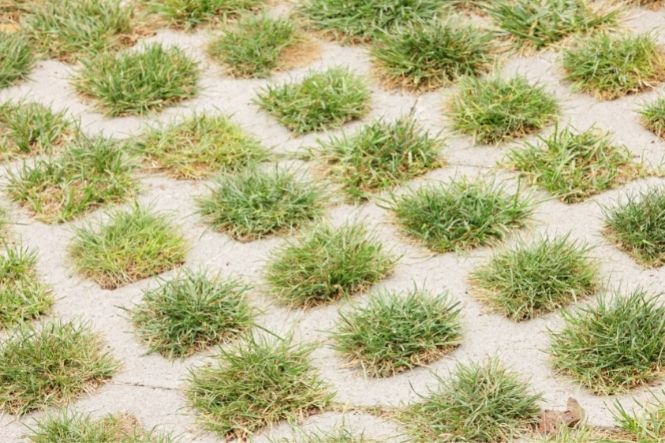If you want to pave a drive but still allow grass to be grown, to help to reduce flooding problems and the loss of microclimates for insects and other invertebrates, cellular paving systems such as grasscrete are a great solution. They are also relatively easy to lay and prices are getting keener, as eco-awareness raises these problems in the public consciousness and creates more demand.
One problem with many other hard driveway systems is that rain water runs straight off them into the sewers or drains, which puts pressure on those systems, making it harder for them to cope with flood waters. There are also rumblings of disquiet that the paving over of front gardens is contributing to the declining number of birds in urban areas, as the insects that are their main food source have nowhere to live. A third problem is that drive surfaces will heat up in the summer then release that heat in the night-time, which contributes to the warning of the atmosphere, whereas lawns and gardens do not.
Cellular Paving Systems
This article concentrates on cellular paving systems, which are gaining in popularity as a solution to these problems. There are other methods and systems and they are covered in a separate article in this section (see Choosing Grass Paving For Your Driveway and Tactile Driveway Surfaces). Most of the cellular paving systems involve a cellular mesh, usually either concrete (as is the case with grasscrete) or a high density plastic.
The cells of the mesh are nearly always hexagonal, although a few are square. Once the mesh is laid, the open cells can be filled with soil or compost and sown with grass seed, or other hardy small-leaved plants. Increasingly they are being filled with gravel or other aggregates too, which Helps The Drainage Problem but doesn’t do much for wildlife.
Foundations for Cellular Paving
As most of these products are provided by manufacturers as complete systems, the construction methods and materials will vary, but they all broadly follow the pattern below. Vegetation and topsoil needs to be removed to the prescribed depth and made reasonably level. Some products will then require a composite membrane to be laid down, which aids drainage but also prevents roots going too far down into the foundation layers.
The sub-base needs to be of a porous material, perhaps 10-20cm of gravel; again look to the manufacturers for specific advice. Then the laying course, which will support the cellular structure, is likely to be grit sand, or in some cases, a mix of sand and topsoil.
Edging and Laying the Driveway
Whether or not there needs to be an edging course depends largely on the site layout. If your driveway has a number of corners, or if there will be heavy traffic, edging may help prevent the cellular structure from creeping sideways under load. If the loads diminish away from the centre of the vehicular area, if perhaps there are pedestrian areas beside the drive, for example, then edging may not be required.
Some concrete cellular paving systems are cast on the site using moulds (grasscrete is an example of this) and others are pre-cast in slabs, which can be laid down just like any other concrete slab. The plastic systems are delivered in mats of a certain size and usually lock together, previously using pins but these days nearly all with integrated locking systems built into the cell walls.
Consider the Cellular Density
With all the systems you need to decide how open the cells should be. If they are very open, with thin walls and little in the way of a base, then you’ll be able to get lots of soil in and good grass coverage. However, the thin walls of the mesh may begin to dig in and sink into the bedding layer if there is a lot of vehicular traffic.
A very closed mesh, on the other hand, will give excellent support to vehicles but there won’t be so much grass growing through it, and drainage won’t be so good. For the domestic market, most manufacturers specify a mesh of something between 45 to 65% open at the base.

